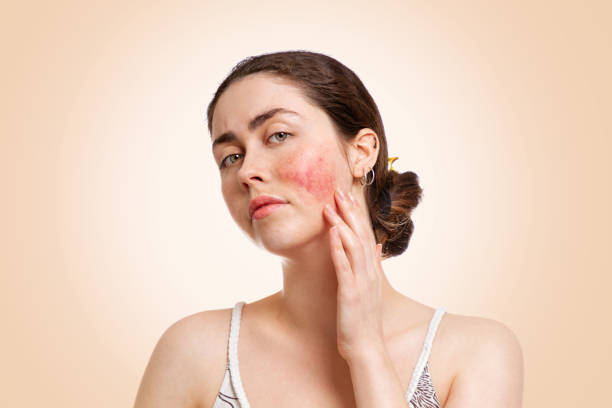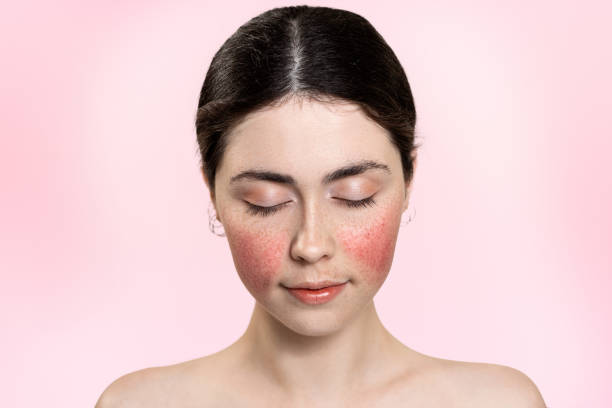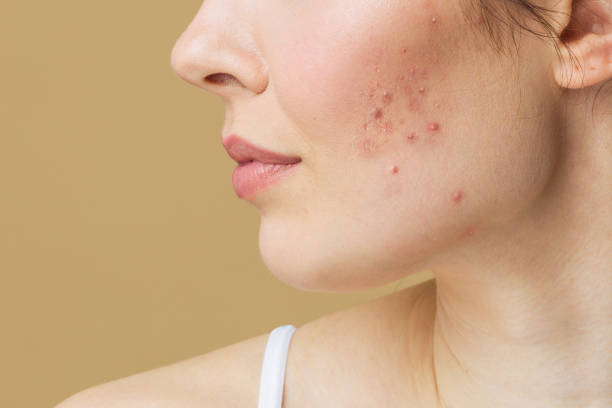If you’re struggling with skin irritation, you’re not alone. Skin inflammation and redness are common issues that can arise due to a variety of factors, ranging from environmental stressors to dietary habits. Fortunately, there are natural ways to alleviate these symptoms. In this comprehensive guide, you’ll learn about the roots of skin inflammation, and discover natural methods to soothe your skin—everything from dietary changes to herbal treatments. Whether you’re looking for immediate relief or long-term solutions, this article will provide valuable insights into maintaining a calm and clear complexion.
Understanding Skin Inflammation and Redness

Skin inflammation, or dermatitis, can manifest as redness, swelling, and sometimes pain or itching. The triggers are varied—internal factors such as stress, hormonal imbalances, or a diet high in inflammatory foods can initiate or worsen the condition. External factors like harsh skincare products, pollutants, and extreme weather conditions also play a significant role. By understanding these underlying causes, you can begin to take proactive steps towards reducing skin flare-ups.
Knowing how to differentiate between inflammation and other skin issues is the first step in seeking proper treatment. Common indicators of inflamed skin include persistent redness, a feeling of warmth, swelling, and sensitivity. If these symptoms accompany visible blood vessels or acne-like bumps, it might indicate specific conditions such as rosacea or acne rosacea, which require targeted approaches for management.
The Foundations of Skin-Care: Preventing Inflammation

What you consume can reflect on your skin’s condition. Diets high in sugar, processed foods, and trans fats can exacerbate inflammation while consuming omega-3 fatty acids, antioxidants, and vitamins found in fruits, vegetables, and lean proteins can reduce it. Let’s explore two critical elements of diet that influence skin health: foods to enjoy and foods to avoid.
- Foods to Enjoy:
- Fatty fish like salmon and mackerel rich in omega-3s
- Fresh fruits and vegetables packed with antioxidants
- Whole grains that provide dietary fiber
- Foods to Avoid:
- Refined sugars that can spike insulin levels and worsen inflammation
- Processed foods high in trans fats
- Excessive dairy intake which some people find inflammatory
Hydration is crucial for reducing inflammation—both in terms of drinking sufficient water and using hydrating topical products. Water helps flush out toxins that can contribute to skin irritation, and hydrating products maintain the skin’s barrier function, preventing irritants from entering.
Natural Remedies for Calming Inflamed Skin
Nature provides an array of remedies that can calm inflamed skin. The following table showcases several herbs and plants renowned for their anti-inflammatory properties, which can be incorporated into your skincare routine or used as dietary supplements.
| Herb/Plant | Usage | Benefits |
|---|---|---|
| Aloe Vera | Topical gel application | Moisturizing, heals burns and lesions |
| Chamomile | Tea or topical application | Soothing, anti-inflammatory, reduces redness |
| Green Tea | Topical application or oral consumption | Antioxidant, protects against free radicals |
Beyond herbal remedies, many ingredients found in your kitchen can serve as soothing agents for inflamed skin. Honey, for instance, provides antibacterial and anti-inflammatory benefits, while oatmeal baths can soothe itchiness and discomfort. These natural ingredients can be mixed into homemade masks or applied directly to the skin for relief.
The Power of Essential Oils
Essential oils can be potent allies in the fight against skin inflammation. When used correctly, they provide targeted relief and aid in skin healing. It’s important to dilute essential oils in carrier oils like coconut oil or jojoba oil to prevent further irritation. Some of the most effective essential oils for inflammation include lavender oil for its calming properties and tea tree oil known for its antimicrobial effects.
Lifestyle Adjustments To Support Skin Healing
Stress can weaken the immune system and exacerbate skin conditions like psoriasis, eczema, and acne. Incorporating stress-reduction techniques such as deep breathing exercises, meditation, and time spent in nature, can positively affect your skin’s health.
Regular physical activity is beneficial for your skin as it is for your overall health. Exercise enhances blood circulation, leads to better oxygenation and nutrient distribution to the skin, and encourages sweat production, which helps to expel toxins. Aim for at least 30 minutes of moderate exercise most days of the week for the best anti-inflammatory results.
When to Seek Professional Help
Natural remedies offer a range of benefits for managing skin inflammation, but it’s crucial to recognize their limitations. If your symptoms persist or worsen despite natural interventions, it may be time to consult a dermatologist. Professional guidance can pinpoint the exact cause of your redness and inflammation, leading to an effective treatment plan tailored to your needs.
Conclusion
Embracing natural remedies can be a transformative step towards reducing skin inflammation and achieving a balanced, clear complexion. By understanding the triggers of skin distress and integrating nourishing foods, hydrating practices, and healing herbs into your lifestyle, you can soothe irritated skin effectively. Remember to give these remedies time to show their benefits, and consult a healthcare professional if your condition doesn’t improve. With patience and persistence, natural solutions can lead to healthier, happier skin.
FAQsQ1: How long does it typically take to see results from natural remedies?
A1: While individual experiences vary, many people notice improvements in skin inflammation within a few weeks of consistent use of natural remedies. However, some treatments may take longer to show their full effects.Q2: Are there any natural remedies to avoid if I have sensitive skin?
A2: Yes, even natural ingredients can irritate sensitive skin. Always patch-test new treatments, and consider consulting a dermatologist to find the most suitable remedies for your skin type.Q3: Can changing my diet really help with skin inflammation?
A3: Diet plays a vital role in managing inflammation. Adopting an anti-inflammatory diet can lead to significant improvements in skin health and a decrease in redness and irritation.Q4: Should I stop using my current skincare products when trying natural remedies?
A4: It’s not always necessary to cease using current skincare products, but if they contribute to inflammation, it might be wise to replace them with gentler alternatives. When introducing natural remedies, do so one at a time to monitor your skin’s response.Q5: Can stress management techniques alone efficiently reduce skin inflammation?
A5: While managing stress is crucial to overall health and can help alleviate some skin inflammation, it is usually best combined with other treatments for a more comprehensive approach.




